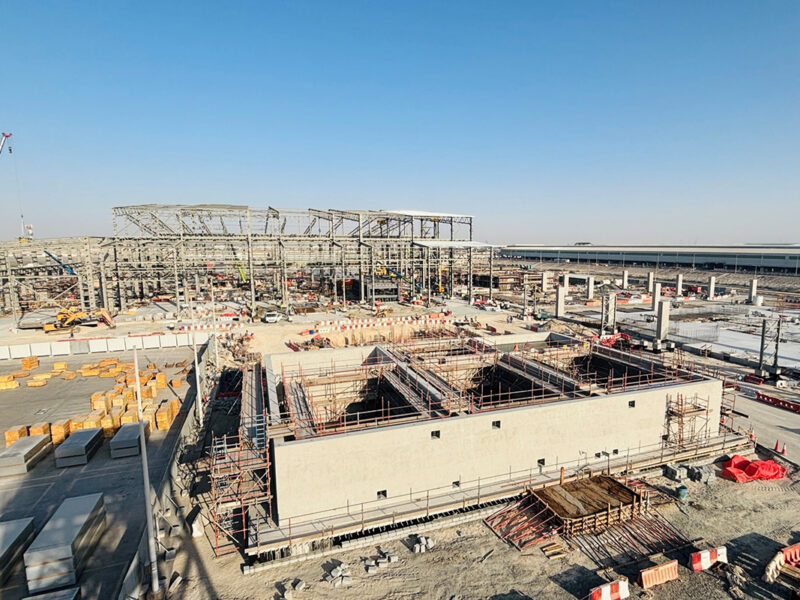|~|adnan-first.jpg|~|Adnan Ali Ahmed Galaf, head of the food safety unit at Dubai Municipality |~|Overseeing the reform of Dubai’s food safety standards is no easy task. Yet Adnan Ali Ahmed Galaf, head of the food safety unit at Dubai Municipality, talks about his plans to maintain utmost compliancy in the emirate
||**||Can you explain the structure of the food control section?|~||~||~|The food control section consists of three divisions. Firstly, we have the food trade unit, which holds responsibility for overseeing the importation and exportation of food to and from Dubai. This division serves as the first barrier for food arriving in the emirate, and procedures include studying the health certificates, physical inspection of the food label requirements, and drawing food samples to perform mandatory laboratory testing.
Next, we have the inspection unit. This deals with smaller outlets such as restaurants, cafeterias, butcheries, and mid-range and lower end hotels. Then there is the food safety unit I am heading up, which ensures safety and hygiene standards at food factories, as well as four- and five-star properties. One of my focus sites is Al Warsan fruit and vegetable market.
||**||What were the most common violations you encountered during inspections last year?|~||~||~|The most frequent violations were inadequate separation of cooked and uncooked food or unclean contact surfaces, which carried the potential for contamination. There were also high numbers of cases of kitchen staff using improper methods for thawing food or cooling cooked food.
Other top violations recorded were food items held at the wrong temperature, and improper storage of food materials. It is important to note that violations address the risk involved in the practise, and does not mean the food was contaminated.
||**||Which regulation do you think is most important for businesses, and why?|~||~||~|The ‘Administrative Order No. 20 of 1992, Food Hygiene Regulations: manufacturing, preparation, cooking, storage, packing, transportation and sale of food for human consumption.’ This covers all aspects of dealing with food, so people should be adhering to this law.
||**||How would you sum up food safety in Dubai last year?|~|adnan-body3.jpg|~|The most frequent violations noted last year were inadequate separation of cooked and uncooked food or unclean contact surfaces. |~|It was a very important year for us in Dubai, particularly considering the rising number of businesses that are now Hazard Analysis and Critical Control Points (HACCP) compliant. Thirty-eight factories were certified last year, and there are now 95 businesses with HACCP accreditation, including seven hotels.
We have more than 100 food inspectors working across the units in Dubai, who inspect businesses and grade them from A-E, based on the violations noted. Our checklist covers everything from personal hygiene, receipt of goods, storage, lighting, preparation, general maintenance, and all other operations to ensure food safety and hygiene. The kitchens in the UAE are much cleaner than in many other countries across the globe.||**||What was the biggest problem that arose last year?|~||~||~|Sudan Red was a huge issue for my unit in 2006, as these illegal, carcinogenic dyes — typically used for shoe and floor polishes — were being used as a food additive to colour spices arriving from India.
We tackled it by setting a zero tolerance limit. We relied heavily on our database as a means to check all products, as it contains the history of every importer and their products.
Cross-contamination though was the highest repeated offence with incidents of risk areas, which had no separation between cooked and uncooked items. ||**||What is the main catalyst for poor hygiene?|~||~||~|Mistakes usually happen due to a lack of knowledge among hotel staff handling the food. For this reason, we have approved certain private companies to conduct training in the food industry. People are becoming a lot more conscious of the fact that Dubai is such a small competitive community, so one comment about poor hygiene can initiate several corrective actions taken at different levels of the organisation.
||**||What are you doing to work alongside hotels?|~|adnan4.jpg|~|”People in Dubai are becoming a lot more conscious of the fact that one comment about poor hygiene can initiate several corrective actions taken at different levels of the organisation,” Galaf says. |~|Representatives from the hotel groups, typically the hygiene officers and executive chefs, are meeting up with the Municipality every three months to highlight the top offences, and to address any food safety and hygiene related issues. Hotel management teams are also encouraged to constantly check the quality of the food supplies coming in. ||**||If poor hygiene is discovered, what action do you recommend?|~||~||~|If there is a violation, we recommend certain actions depending on the significance of the problem and the risk involved. We work with people in the industry and derive solutions that lead to effective modifications of the entire system, in order to help maintain standards. ||**||What significant moves have eased the volume of your inspections?|~||~||~|The recent launch of the Food Import and Re-Export System, a web-based application that enables traders to apply for different facilities provided by the food control section at the Municipality. This has strengthened controls by facilitating the release of consignments, approving food labels according to the specifications, and issuing food destruction certificates. ||**||What are your plans for 2007?|~||~||~|This month sees the launch of our new code of practise for food transportation. This will concentrate on monitoring the food chain, particularly the temperature and humidity
of vehicles.
We are already inspecting suppliers’ warehouses, but transportation until now has not been checked as thoroughly as it should be. Our biggest complaints are about products not arriving fresh, from small to large-scale suppliers, so vehicles must now be registered for delivery. We are meeting with suppliers to discuss any issues they have. ||**||








